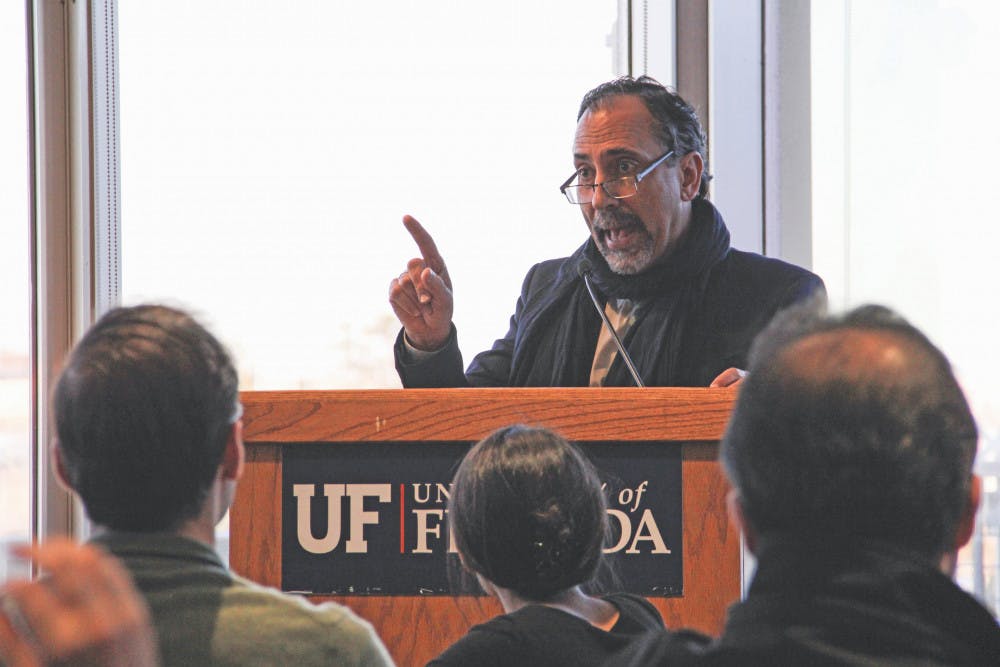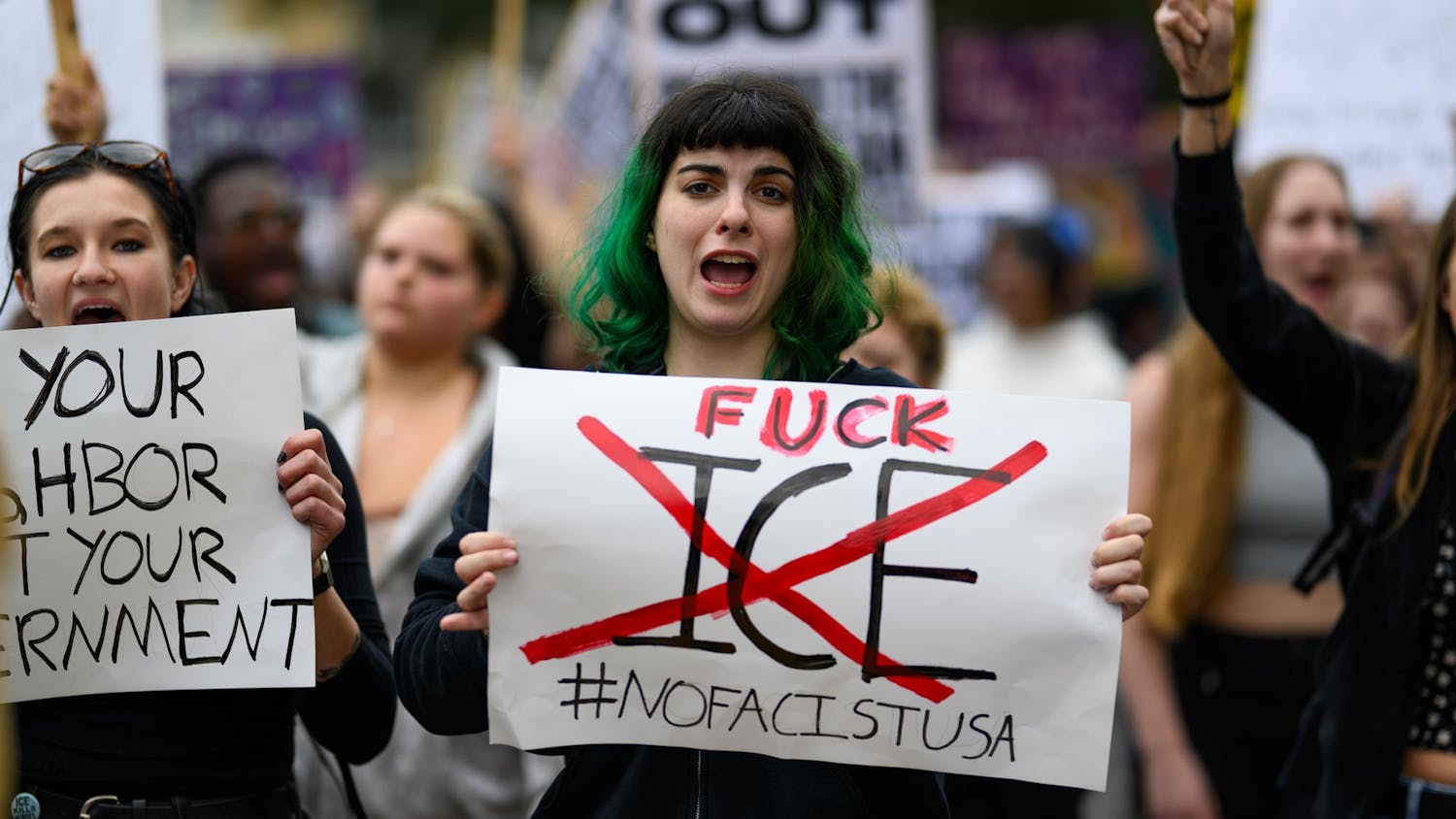The silence on Monday night was breached by sniffles, gasps and the occasional whisper in a foreign language, as students from countries now banned under a Donald Trump presidency spoke out against his executive order.
As more than 100 people gathered in the Reitz Union’s Arredondo Café, Leonardo Villalón, the UF International Center’s dean, addressed UF international students concerned about the temporary travel ban imposed on seven Muslim-majority countries by Trump on Friday. UF officials, including representatives from the Dean of Students Office and Student Legal Services, tried answering questions, their voices shaking with emotion.

In total, 167 UF students, faculty and staff combined come from one of the seven countries affected by President Donald Trump's immigration ban. No students, faculty or staff come from Somalia, Sudan or Yemen. These people do not hold a green card or have permanent residency but study or work at UF on scholar or work visas.
“This is all very abstract, but your lives are affected by this,” Villalón said. “I know how horribly distressing this is.”
The ban restricts immigration from Syria, Iran, Iraq, Sudan, Yemen, Libya and Somalia for 90 days, while suspending the U.S. refugee program for 120 days and suspending the entry of Syrian refugees indefinitely.
In total, 167 UF students, faculty and staff come from one of the seven banned countries, according to figures from UF spokesperson Janine Sikes. Of those, 126 are students. These people do not hold green cards or have permanent residency, but study or work at UF on scholar or work visas.
After Monday’s meeting, Villalón said he tried answering questions as best he could but often couldn’t give students concrete solutions. A Syrian student asked how he could renew a passport that expires in eight months. There aren’t Syrian embassies nearby, and now he cannot leave the U.S. to get to one in another country.
Villalón and faculty members shook their heads or looked at their feet. Their only solution was wishing for politics to shift.
“You have eight months,” Villalón told the student. “Let’s hope.”
Unlike others, Santa Fe College alumna Nazek Abuhalala has her family with her. Her and her mother, Manal Abuagela, come from Libya, a country targeted by the ban.
Abuagela, a UF doctoral student, said she spent all her savings moving her family to the U.S. to study. Now, a year before earning her Ph.D., she’s worried their progress will be erased.
UF officials ranging from attorneys to faculty members gathered in the Arredondo Café at the Reitz Union on Monday afternoon to address the concerns of those affected by the president’s new travel ban.
She questioned how the ban could happen here, in a country she considered free.
“This is considered a crisis affecting the U.S. history,” Abuagela said. “This is a country of freedom, a country of diverse respect.”
As people stood and asked questions, an Iranian student who moved to the U.S. about two years ago said while he’s happy with UF’s support, he still feels marginalized. The student, who didn’t give his name for fear of his safety, said he no longer feels comfortable saying where he’s from.
“What I saw in this session was accepting the fact that they insulted us, disrespected us, and we can’t do anything about that,” the doctoral student said. “It’s not about being back home for Summer, I won’t die if I don’t go back home. But it’s about what do I do to just at least say, ‘I exist, and you insulted me?’”
Villalón told the doctoral student he didn’t have easy answers.
“I cannot end American racism,” he said. “I cannot end American xenophobia. But I can tell you that I think if there is a way to end it, it can’t be by capitulating. It’s got to be by fighting back.”
@romyellenbogen
rellenbogen@alligator.org
Leonardo A. Villalón, the dean of the UF international center, addresses those who are concerned about the president’s new travel ban in the Arredondo Café at the Reitz Union on Monday afternoon. “Your lives are very much affected by this,” Villalón told the crowd of about 100 in attendance.






